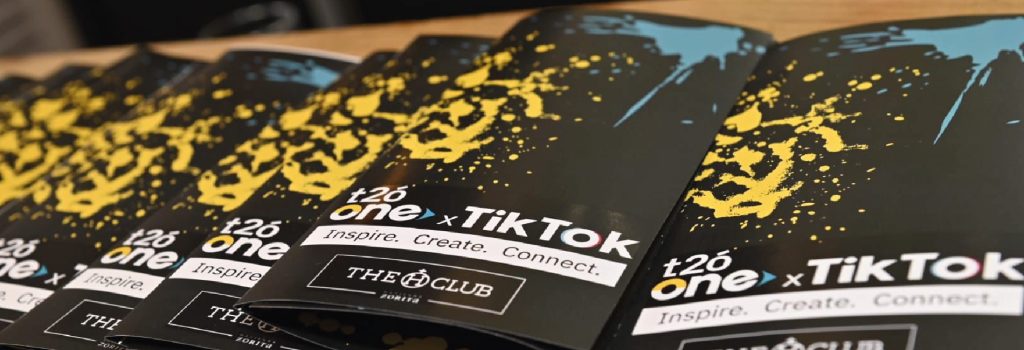In 2025, the tourism sector will continue to progress, driven by technological advancements that are revolutionizing the traveler’s experience and trip planning. These kinds of innovations are redefining user expectations, pushing companies to adopt more connected, efficient, and personalized strategies. One event that clearly reflects all the changes and innovation within this sector is FITUR, the International Tourism Fair held in Madrid from January 22-26, which aims to become a key space for tourism companies to showcase their most innovative solutions, learn about emerging trends, and discover new ways to connect with travelers.
Undoubtedly, if there’s one protagonist in this story, it’s digitalization, which presents itself as a key driver for the tourism industry, as it is transforming the travel life cycle. Also worth mentioning are the so-called «flying taxis,» which promise to revolutionize mobility and connectivity.
Of course, Artificial Intelligence wasn’t going to be left behind in the tourism sector. In fact, this technology is playing a crucial role in the user experience within the travel industry, as more and more companies are employing it to adapt their strategies to users’ needs, primarily through the use of chatbots and virtual assistants that help users organize their trips.
At the same time, the use of Virtual Reality within organizations is offering multi-user experiences, demonstrating that digitalization can transform consumer experiences by responding to the current demands and needs of travelers.
On the other hand, robotics and Big Data are also playing a key role in the tourism sector, thanks to the implementation of projects that help optimize and improve efficiency in performing various tasks. Data is also important in companies’ strategies, and having a good analysis of this data helps transform it into valuable insights. For this reason, some companies have opted to integrate data literacy training among their employees.
Undoubtedly, these types of trends are shaping a more automated, interconnected, and customer-centric tourism industry, where technology and cybersecurity are becoming increasingly essential in ensuring unique experiences for users.
Main Digital Trends in the Travel Sector
- Artificial Intelligence
The use of AI is driving hyper-personalization of the user experience when it comes to travel. Thanks to advancements in technology through intelligent systems, companies can analyze large volumes of data to offer more personalized and predictive recommendations, optimizing itineraries and suggesting specific services and destinations based on travelers’ searches and preferences. Chatbots and virtual assistants provide 24/7 support to their customers, thanks to AI, enhancing the experience from planning to the final destination.
- Virtual Reality
This technology is revolutionizing the way travelers choose their destinations. Online platforms and travel agencies use these technologies to offer immersive virtual tours of hotels, experiences, and tourist destinations before travelers make their bookings. This trend allows users to virtually visit the places they wish to go, making it easier for them to make decisions.
- Robotics
Robots are a key element in tourism, helping to enhance the customer experience through their service in airports and hotels.
An example of this is that robots are capable of performing check-ins, managing luggage, or providing tourist information, thereby assisting with tasks that are currently carried out by humans.
At the same time, there are robots that help with logistics and cleaning in order to optimize internal tasks, improving efficiency and various maintenance processes.
- BigData
Analyzing and collecting large volumes of data is a key factor when making strategic decisions in the tourism sector.
For this reason, more and more companies are using technologies such as Big Data to anticipate consumers’ needs and behaviors at the moment of action. Moreover, this allows them to set more dynamic pricing and optimize the offering of personalized services.
Data analysis enables companies to provide users with a more tailored and efficient experience, improving both customer satisfaction and company revenues.
- Business Intelligence, 5G, biometría e IoT.
IoT technology is creating a much smoother and more automated travel ecosystem. Suitcases with IoT tags allow real-time tracking of luggage at all times. At the same time, in hotel rooms, these technologies enable guests to control the temperature, lighting, television, and other entertainment systems through mobile apps or voice commands.
Business Intelligence allows hotels to balance their bookings in real-time through direct booking channels, enabling the connection of mobile phone reservations with unified pricing and payment systems, with the goal of regaining control over prices and improving rate management.
What will you find in this report on «Digital Trends in the Tourism Sector 2025»?
In addition to breaking down in detail all the industry trends and their use cases, this report features insights from Raffaella Bianchi, Chief Revenue Officer of Covisian; Leandro Coberllini, Director of OTAs at Ávoris Corporación Empresarial; and Domenico Pellegrino, CEO of Bluvacanze Group, who have shared their perspectives on the following topics:
- The notable impact of AI in solving challenges or enhancing the customer experience in their companies.
- The impact of AI-driven hyper-personalization on customer satisfaction and loyalty in the tourism sector.
- The new functionalities being developed to address emerging trends in tourism.
- The evolution of virtual assistants and chatbots in the tourism sector to improve 24/7 customer support.
- How emerging technologies, such as Virtual and Augmented Reality, have radically changed the way we organize and experience travel.
Do you want to discover how all these trends are being put into practice? We share some use cases from major companies worldwide. Keep reading and download the full report for free!
1./ Artificial Intelligence: tailoring every experience to the traveler’s profile.
- Hotelplanner: chatbots that book hotel rooms.
- Amadeus: generative AI that will revolutionize travel.
- Guidegeek: the travel assistant that works through WhatsApp.
- Lighthouse: reimagining the commercial strategy through AI.
2./ VR/AR: much more than immersive experiences.
- Barceló Punta Umbría: virtual Reality for family tourism.
- Tourism Innovation Summit: sensory trips to help decide on a destination.
- Domus Aurea: reliving Nero’s empire through technology.
3./ Robotics: increased operational efficiency.
- Magic Costa Blanca: pioneering implementation of collaborative robots.
- Hostelco 2024: automation to recover hospitality.
- Pomerania: the first robotized hotel in Europe.
- Cybercop: a ‘police’ robot for cruise security.
4./ Big Data Analytics: the invisible engine behind decision-making.
- BBVA: transforming tourism in Mexico with advanced data.
- Air Europa: a data-driven company with its own academy.
- Lufthansa: data that reduces costs and improves sustainability.
- Uber: big Data to optimize platform efficiency.
5./ Other trends: Business Intelligence, 5G, Biometrics, and IoT
- Oasis Hotels: balancing bookings through online and offline channels.
- Room Mate: hyper-intelligent advertising personalization.
- Prosperity: how the world’s first flying taxi works.
- TalentChef: menus based on guests’ biometric data.
- Santiago de Compostela: smart lighting in its streets.
Download the full report «Digital Trends 2025 | Travel Sector» for free here:



